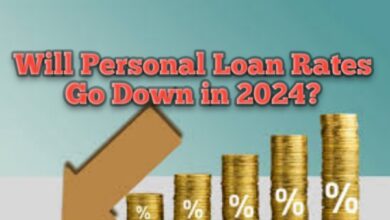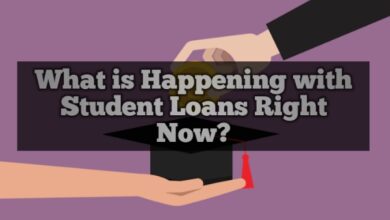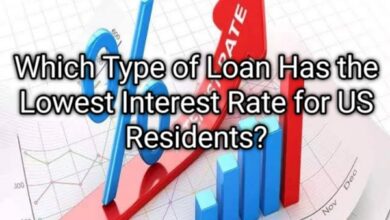What Happens When You Stop Paying on a Consolidation Loan?

Have you ever thought of the negative side of not paying your debt? Debts are resources that come in timely through people known as lenders.
So, ever thought of what it feels like when you do not pay your debt? Or the results? Let’s explore the effects of not paying a consolidation loan.
Not paying back debt can have serious consequences that negatively impact your financial health and future. When you take out a consolidation loan, you are aware that you also made a commitment to repay the money you borrowed plus some interest.
So failing to make payments as agreed can hurt your credit score, making it harder to qualify for loans, mortgages, rentals, and more in the future.
Effects Of Not Paying a Consolidation Loan
- Credit score dive:
When you stop paying your consolidation loan, your credit score begins to drop, which might affect you and also allow the lenders not to trust you anymore.
- Increase in interest rate:
Late repayment or total stopping of repayment can lead to an increase in your interest rate. That is the amount you are suppose to pay back during the loan period will increase when you have passed the time frame you are supposed to repay.
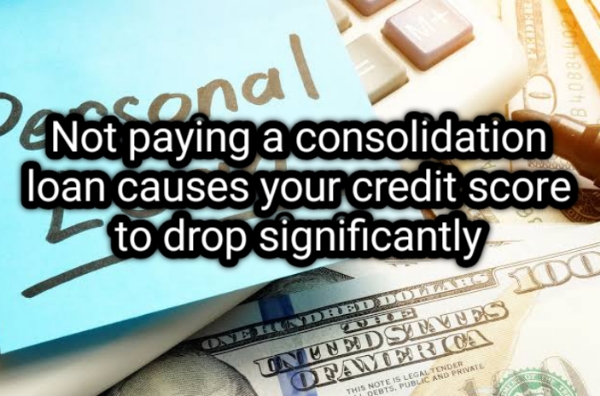
- Calls:
You begin to receive different calls from your lenders asking why you are not paying, some of the lenders might even start threatening you as a result of failure of not following the initial agreement of your repayments plan.
- Loan default:
As a result of a prolonged loan repayment from the borrower, the lender might declare a loan default.
A loan default is when the borrower failed to make required payments of the amount borrowed as expected.
Causes Of Loan Default
- Financial Hardship
This is when you have a series of issues and a lot of problems regarding your finances. Financial hardship can be informed of loss of jobs, sickness and unexpected expenses which can make it difficult for you to pay back your loan.
- Lack of financial management:
This is when you do not manage your finances properly. For instance, overspending. This is when you spend on unnecessary things, things that are not important or things you do not need. Lack of budgeting or taking too much debt, can bring about loan default.
- Neglecting your debt:
This is when the borrower ignores and overlooks their debt, that is you are running away from your debt whereas you know it is there waiting for you or you are expecting a miracle without doing the right thing. It is just like ignoring a problem and thinking it would be solved on its own, without thinking of ways it can be solved.
Consequences Of Loan Default
If you default on a consolidation loan, the lender can take any legal action against you like wage garnishment to collect what you owe. This means they can seize a portion of your paycheck to cover the unpaid debt.
Your wages may even be withheld altogether in some cases.
Defaulting can also result in liens being placed on your property or assets, allowing them to be seized and sold off to pay the debt.
Some Consequences Of Loan Default include:
- Legal action:
The lender might take legal action against the borrower, by suing the borrower to court in order to recover the debt or all the borrower assets might be seized.
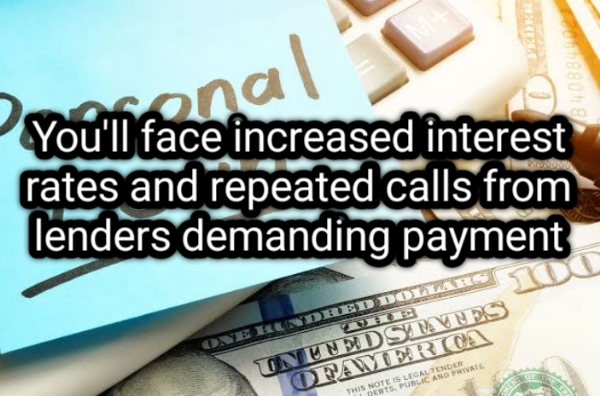
- Repossession of secured loans:
If you use collateral like car, house and do on, the lender might collect everything from the borrower, leaving the borrower with nothing.
- Difficulty in getting a house:
Default makes it difficult to get a house and for you to rent a house.
- Effect On employment:
Loan default can affect ones employment . When your employers check your credit report, as part of the hiring process, default could hinder your job application.
Alternatives To Loan Default
The stress of unpaid debts weighing on you can take a toll on your mental health as well. You may feel anxious, depressed or desperate without a plan to become current on what you owe.
High debt negatively impacts relationships too. But you have options, like communicating with lenders to negotiate alternate payment plans, or working with a credit counseling agency to get your finances back on track.
The sooner you take action, the more control you’ll have over your situation. Paying back what you owe maintains trust and your ability to access credit when you need it.
Some option when you default on your loan payment include:
- Meet your lender:
Ensure you contact your lender to inform them about your financial hardship situation and tell your lender to have forbearance.
- Seek counseling:
Go for credit counseling. Go for non-profit counseling, they offer personalized guidance. Speak to creditors. Have a budget that will help you manage your debt.
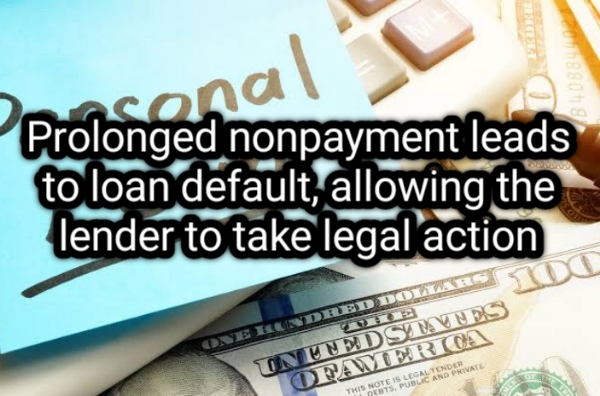
- Go for debt management plans:
These debt management plans help you to consolidate your debts into one debt payment, with reduced interest rates, offering more manageable solutions.
Conclusion
Have it in mind that whatever problem you are facing, you cannot run away from it but rather look for the possible means of solution to it.
Meet with people, ask questions, communicate, do not close your mouth until you find out how you will get the whole problem fixed and cleared. Loan default can be embarrassing, so do not have the intention of not paying your consolidation loan.
Never look at the consolidation loan thinking it is too much, start the repayment plan and one day, it will surely end.
Questions
- Is it advisable to default in your debt payment?
No, it is not good to default in the payment of your debt.
- Can you reach out to your lender if you can no longer meet up with the repayment plans?
Yes
